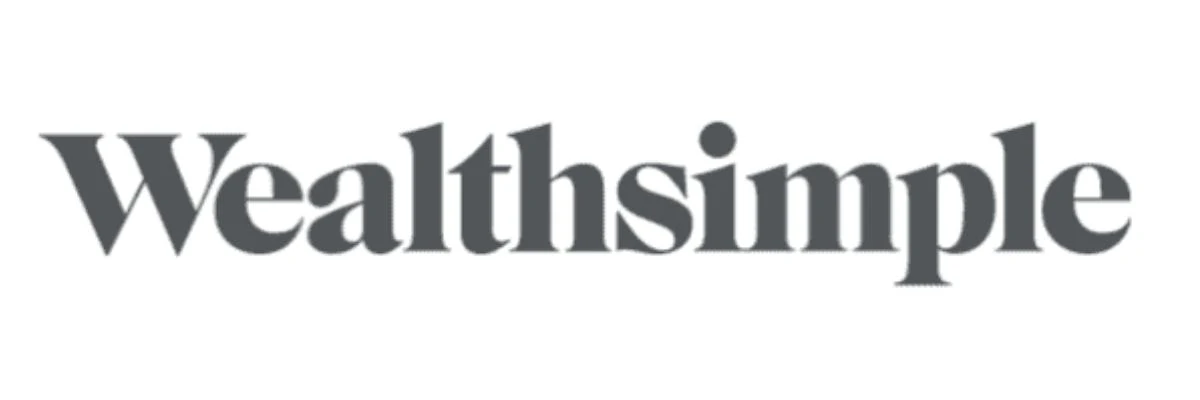Wealthsimple vs. RBC InvestEase – 2025 Comparison
Whether you’re looking at the cutting-edge fintech company Wealthsimple, or the long-established Royal Bank of Canada (RBC), both financial institutions are keeping pace with Canadians’ growing interest in index investing. Wealthsimple and RBC each have managed wealth platforms that have made the list in our Best Robo Advisors in Canada list. Both institutions also have online brokerage options, although their rankings have dropped in our list of the Best Online Brokers in Canada.
Researching the best Canadian robo-advisors and top brokerages can quickly become overwhelming. With so many excellent options available in Canada, it’s not always easy to figure out how they stack up against each other.
That’s why we’ve put this together for you: a side-by-side comparison of Wealthsimple Invest and RBC InvestEase, along with Wealthsimple Trade and RBC Direct Investing. We’re here to help guide you through the decision-making process: to help you understand the services, features, and fees, all while highlighting key differences and the best overall value.
We also suggest taking a look at how our top-rated robo-advisor performs in our Justwealth Review, and how our highest-rated brokerage account measures up in our Qtrade Review.

Best 2025 Canadian Robo Advisor Promo:
Up To $500 in Cash
Open an account with Justwealth and get the best robo advisor promo offer in Canada*.
Justwealth has the best portfolio performance out of all Canadian robo advisors + the best promo offer. Get it by clicking the button below:
* Based on investment amount ** Applies only to New clients who open and fund a new account. *** Justwealth Review: more details.
Wealthsimple vs. RBC InvestEase: Quick Comparison
Just because they come from wildly different companies, doesn’t mean these robo-advisors don’t have anything in common!
The chart below is a great way to get a big-picture idea of what RBC and Wealthsimple have to offer. We’ve taken all the information from our Wealthsimple Review and our RBC InvestEase Review and put it side-by-side for easy reference.
 | ||
|---|---|---|
| Management Fees |
|
|
| MER | 0.12%-0.15% for Standard ETFs, 0.21%-0.23% for SRIs. | 0.11%-0.14% for Standard ETFs, 0.18%-0.23% for SRIs |
| Investment Options | 14 ETFs (7 standard, 7 SRI), iShares Blackrock only. |
|
| Returns | 1.96% to 5.54% annualized growth. | 2.5% to 8.9%, but note that this robo advisor only launched in 2018. |
| Customer Service | Easy to access (human) advisors, fiduciary responsibility. | Easy to access, fiduciary responsibility. |
| Sign Up | Visit Wealthsimple & Get $50 Free | Visit RBC Investease |
You can find a full analysis of each robo-advisor in their individual reviews, but context is always helpful when you’re making a comparison. Let’s break down the major similarities and differences.
Wealthsimple or RBC: Fintech vs. Bank
Wealthsimple is a fintech company that was launched in 2014, but just because they’re new, that doesn’t make them insignificant. Wealthsimple has about 3 million account holders and over $50 billion in assets under management. Wealthsimple Invest was once our most recommended robo-advisor, but they’ve recently fallen to second place, behind Justwealth.
RBC is the largest bank in Canada with over 20 million clients and over 160 years of history. Their robo-advisor, RBC InvestEase, launched in late 2018. RBC is one of only two big banks to offer robo-advising (the other is BMO, which rolled out their SmartFolio robo-advisor in early 2016).
These two companies are incredibly different, but they overlap in one area: they’re dedicated to providing investors with a user-friendly passive investing option.
Wealthsimple vs. RBC: Security
Both Wealthsimple and RBC are legit, safe, and trustworthy. Your account is held by a custodial broker that is a member of the Canadian Investor Protection Fund (CIPF) and regulated by the Investment Industry Regulatory Organization (IIROC).
This means two things for you:
1. The way both companies invest your money is regulated by an independent agency
2. If either robo-advisor goes bankrupt (extremely unlikely with billions of dollars under management by each one), your accounts are protected up to $1 million.
Both companies also protect your data with bank-level encryption and security. RBC even offers account holders a 100% reimbursement if a data breach results in an unauthorized transaction.
Wealthsimple vs. RBC: Fees
While account holders are charged based on a percentage of their account total annually, the fee structures for Wealthsimple and RBC vary.
Wealthsimple takes a tiered approach and charges:
- 0.5% on accounts up to $100,000
- 0.4% on accounts of $100,000 to $10,000,000
- 0.2% on accounts over $10,000,000.
RBC on the other hand charges a flat rate of 0.5% regardless of account totals.
So, if you hold more than $100,000 in assets, you will be charged a lower fee with Wealthsimple than with RBC.
The MER on Wealthsimple’s ETFs varies, ranging from 0.12%-0.15% annually. The MER for their Socially Responsible Investments is higher, ranging from 0.21%-0.23%.
RBC InvestEase’s ETFs have an average MER range of 0.11%-0.14% and their SRI options range from 0.18-0.23%, which is slightly lower than Wealthsimple’s.
Obviously, we appreciate Wealthsimple’s discount for larger accounts, which can add up to a lot as your total holdings increase. We can’t deny that RBC does offer fractionally lower total fees for their SRIs, but if you have an account over $100,000 and qualify for Wealthsimple’s lower annual fee, the cost difference disappears almost entirely.
Wealthsimple vs. RBC: ETF Selection
Wealthsimple portfolios typically include ETFs from top providers in Canada such as Vanguard, iShares, and BMO.
RBC works with a selection of 7 standard and 7 SRI ETFs. They have an exclusive partnership with iShares, so they offer RBC iShares ETFs only.
iShares is one of the best ETF providers in Canada, so this isn’t a deal-breaker, it just means that RBC investors could miss out on offerings from companies like Vanguard and BMO.
When it comes to ETFs in Canada there are so many options. Of course, we’ve taken a deep dive into researching them for you. Check out our articles on the Best Canadian All-One ETFs, Top ETFs in Canada, and Best Dividend ETFs in Canada.
Wealthsimple vs. RBC: Socially Responsible Investments
Both Wealthsimple and RBC InvestEase take responsible investing seriously.
Wealthsimple Invest’s SRI ETFs:
- Contain no investments in the oil, tobacco, or weapons industries.
- Stick to more sustainable industries like clean energy, electric cars, and plant-based meats.
- Avoid the top 25% of carbon producers in each industry for their SRIs.
- Make sure that every company in their fund has at least 25% (or a minimum of 3) women on their board of directors. The fact that this is still notable in 2025 is a whole other issue, but we appreciate the gesture.
RBC has branded their SRIs “Responsible Investing” because it goes beyond the social aspect and covers environmental, social, and governance factors. For example, they:
- Avoid companies in the tobacco, “controversial weapons,” and civilian firearms industries.
- Avoid any company involved in “severe controversies” (harassment claims, emissions test data falsification, etc).
- Assess all investment candidates based on environmental, social, and governance standards.
TBC has a lot of math to back this up, which you can find on their website, but basically what it means for you is a collection of ETFs you can feel good about investing in.
The bottom line here is that both Wealthsimple Invest and RBC InvestEase are dedicated to finding unproblematic investment options, not only environmentally but also socially and legally. RBC has a slight leg up on Wealthsimple in this area because they offer a wider selection of ETFs with lower average MERs, so if SRIs are your main focus, you may want to keep this in mind.
Wealthsimple vs. RBC: Portfolio Options
Both companies offer a variety of portfolio options. Wealthsimple offers 3 basic portfolio templates: Conservative, Balanced, and Growth. These are available for their standard, SRI, and Halal portfolios. Within each of those 3 types of portfolios, your asset allocation is adjusted based on your risk tolerance and is given a value from 1-10. This value is based on information you provide and is used to determine the exact allocation of your portfolio, so there’s a good amount of customization.
RBC offers 5 portfolios ranging from Very Conservative to Aggressive Growth, using either standard ETFs or responsible investing ETFs. It’s a solid range of portfolios, diverse enough to provide options for any goal or level of risk tolerance.
Both Wealthsimple and RBC InvestEase rebalance your portfolio if it strays too far from your ideal asset allocation. They also reinvest any dividends earned to grow your account even faster.
Wealthsimple vs. RBC: TFSAs, RRSPs, and more
We’re always interested to see what accounts a robo-advisor offers, and it can make a difference in how we rank them. We value a good selection!
Wealthsimple Invest offers a wide range of accounts including:
Meanwhile, RBC InvestEase only offers TFSAs, RRSPs, FHSAs, and non-registered accounts. However, RBC Direct Investing (RBC’s DIY online broker) offers RRIFs and RESPs. Even with RBC’s variety of options through either their robo-advisor or their online brokerage, you don’t have as many account options as with Wealthsimple.
Wealthsimple vs. RBC: Performance
Year-to-year investment performance is a tricky metric and nearly impossible to draw useful conclusions from.
Wealthsimple Invest and RBC InvestEase allocate funds differently, and that will lead to different results based on how those particular sectors are doing in any given year. For example, Wealthsimple invests more of your money into the US and emerging markets than the more Canada-focused RBC does at every risk level.
The thing is, differences in year-to-year performance don’t indicate that one robo-advisor is better than the other – they’re just different, that’s all.
Don’t chase returns!
Pick a robo-advisor that works for your needs, stick with it, and recognize that you’re in it for the long haul. Any discrepancies in performance tend to even themselves out over time.
Wealthsimple vs. RBC: Sign-up Process
Signing up for both RBC InvestEase and Wealthsimple Invest is easy. All you need is your SIN, address, and banking information. You’ll be taken through a questionnaire that helps them pinpoint your financial goals, timeline, and risk tolerance, and select the right portfolio for you.
Once you’re all set up, all you need to do is fund your account.
Wealthsimple vs. RBC: Minimum Balance
One of the things we love about Wealthsimple is that they start investing with however much you put in your account, even if you only deposit $5. RBC will allow you to open an account with any amount of money, but they won’t invest it until you reach a $100 balance. Furthermore, your money won’t be invested in a fully diversified portfolio until your balance reaches $1500.
This isn’t as good as Wealthsimple, but it’s miles better than robo-advisors like NestWealth, which requires a $1,000 deposit, or Justwealth, which requires a $5,000 minimum deposit for all accounts except RESPs.
Wealthsimple vs. RBC: Perks, Benefits And Extra Features
In addition to their 0.1% discount on annual fees for accounts over $100,000, Wealthsimple Invest provides higher-balance investors with tax-loss harvesting, a discount on estate planning, and more. Accounts over $500,000 get those perks plus enhanced offers like a personalized financial report and 50% off of a health insurance plan (for residents of Ontario).
RBC doesn’t offer any perks for higher balances. Everyone pays 0.5% annually and there aren’t any bonus features at all. Obviously, if your account is under $100,000, this difference doesn’t affect you, but if you have more to invest, Wealthsimple is the better value.
When it comes to perks – our stance is that while they’re nice, they can’t be at the expense of quality of service, and they’re only worthwhile if they’re perks you’ll actually use!
Wealthsimple vs. RBC: Available Promotions
Wealthsimple Invest is offering our readers a welcome bonus: $50 cash if you open an account and invest $500. There are many other reasons why they’re one of our most-recommended robo-advisors, but this certainly doesn’t hurt!
RBC does not have a current promotion running.
Wealthsimple vs. RBC: Mobile App and Website
Wealthsimple Invest’s app is streamlined and easy to use. It allows you to monitor your investments, fund your account, and contact the financial advising team easily. It is rated at 4.6 stars on the Apple App Store and 4.4 stars on the Google Play Store for Android users.
RBC InvestEase doesn’t have its own app. Instead, you can view your account and make transfers from your RBC bank account using the RBC banking app or RBC online banking site. The RBC Mobile app has a spectacular 4.8 star rating on the Apple App Store, but a low 2.2 stars on the Google Play Store.
If you’re already an RBC customer, this all-in-one app could be seen as an advantage (one less site or app to check!). If you’re only with RBC for the robo-advisor, it’s not ideal (and there are better choices out there). RBC’s app and online platform are fine, but when investing is just one of many features, it’s easy for finer details to fall by the wayside.
Wealthsimple vs. RBC: Customer Service
Both RBC InvestEase and Wealthsimple Invest have a team of accredited portfolio advisors on call by phone or email.
Certified Portfolio Advisors are fiduciaries, which means that they’re legally required to give you advice in your own best interests. Not all “financial advisors” are registered, and you can have confidence in the ones who are.
When you’re looking at robo-advisors or Canadian online brokers, having real people you can talk to is not a given. The teams of actual accredited humans on call for Wealthsimple and RBC are just one reason why they’re among the best robo-advisors in Canada.
Wealthsimple or RBC? Frequently Asked Questions
Wealthsimple vs. RBC – Which One is Better For You?
While Wealthsimple and RBC have solid offerings for both robo-advisors and online brokerages neither of them take the top spot in Canada. They are safe, reliable, and offer an excellent way for Canadians to benefit from index investing but superior options do exist.
For many years, Wealthsimple Invest took our top place as a robo advisor, but this is no longer the case. In our Justwealth Review, you will see how Wealthsimple has been surpassed due to Justwealth’s excellent investment performance and generous promo offer.
As for their online brokerage platforms, Wealthsimple Trade and RBC Direct Investing do a good job, but both fall short of Qtrade with their free buying and selling of 100+ ETFs. To learn more about Canada’s top brokerage option check out our Qtrade Review.
RBC offers the convenience of an all-in-one banking institution with a household name, so if you’re inclined to go with the time-tested, RBC might be your best bet. Wealthsimple has an easy-to-use interface and intuitive design so if you’re trying to make the leap into investing that may be the best place for you to start.
In the end, you’re not going to go wrong with either option. When it comes down to the one-on-one comparison of Wealthsimple vs RBC, the true winner is whichever platform you feel most at ease with and are most likely to stick with!
I've Completed My Million Dollar Journey. Let Me Guide You Through Yours!
Sign up below to get a copy of our free eBook: Can I Retire Yet?










